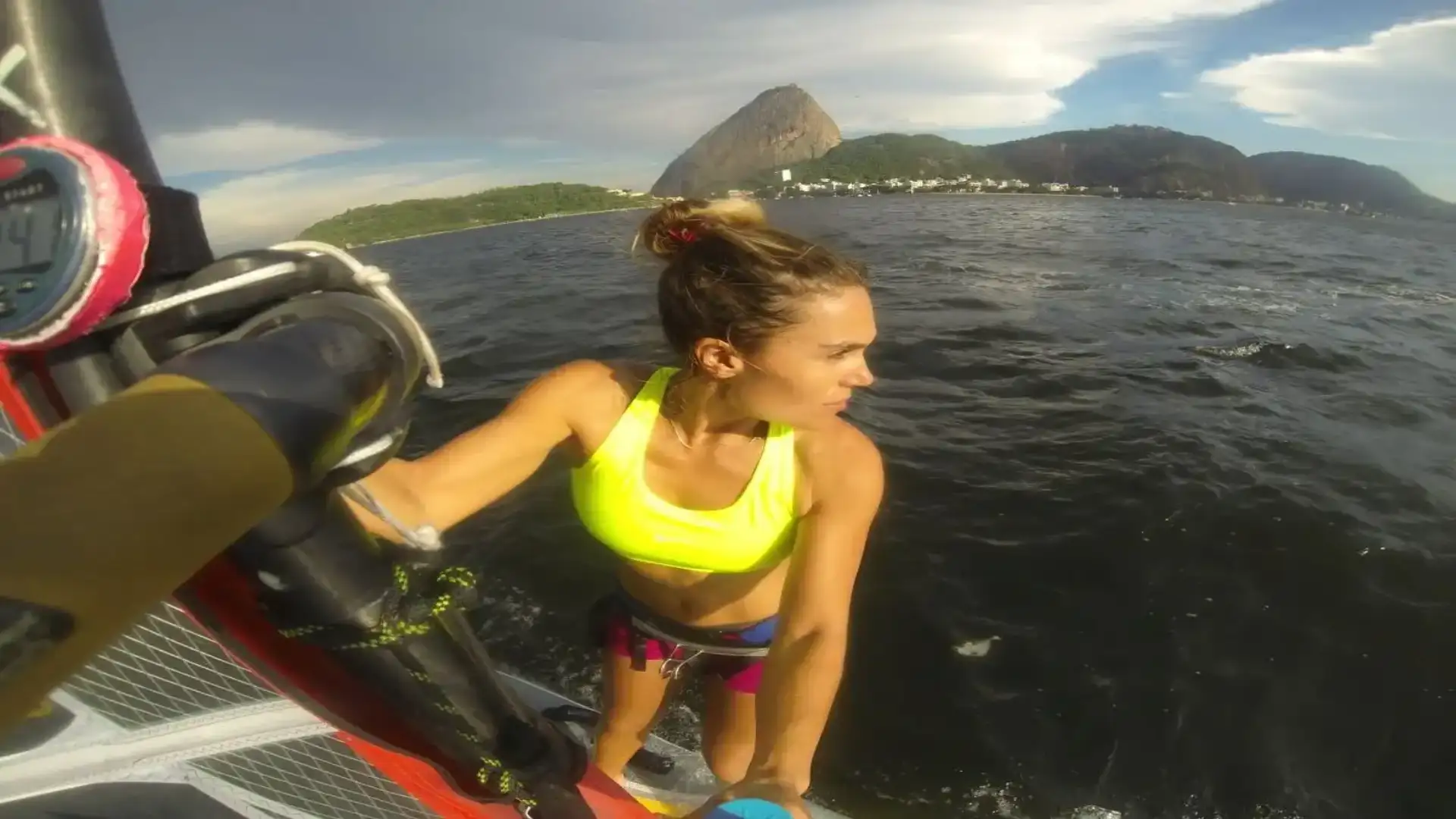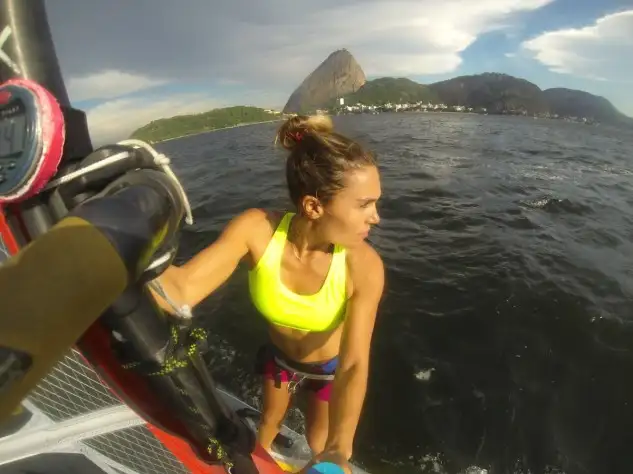
The Olympic waters of Rio are contaminated and pose a risk to the participants.
The Olympic waters of Rio are contaminated and pose a risk to the participants.
The United States Associated Press news agency has conducted an investigation confirming that the waters in which they will celebrate the swimming, rowing and sailing competitions at the 2016 Rio Olympic Games are contaminated. The confirmed study is filled with human waste, high levels of viruses and bacteria from wastewater, which represents a serious risk to the health of athletes, as well as to tourists visiting the emblematic beaches of Rio de Janeiro.
This is the first research on the presence of viruses and bacteria in the Olympic headquarters, carried out by the AP in four sets of water analysis carried out since March. The results alarmed international experts and generated enormous dissent among competitors, some of whom have already suffered fevers, vomiting and diarrhoea after training in these waters.
These ailments could hit an athlete a day, which could end the dreams of an Olympic medal and years of hard training.
"It is by far the poorest water quality we have seen throughout our career," said Ivan Bulaja, a technical of the Austrian team that was prepared for months at Guanabara Bay, where it will be held in competition. "I'm sure if you swim here and get water through your mouth or nose, your body is getting a lot of bad things."
The Austrian navigator David Hussl has already fallen ill
"I had high temperatures and stomach problems," he said. "I always spend a whole day in bed and never sail again for two or three days."
Water pollution is common in Brazil, and in particular in Rio, where most of the waste water is not treated and many waste is channelled by open-air cunetas and poured into rivers and streams that lead to Olympic headquarters and can ruin the beaches that are used in the city's postcards.
Dr. Richard Bidgett, medical director of the International Olympic Committee, said after seeing the findings of AP that the IOC and the Brazilian authorities must adhere to their program of looking for only batteries to determine whether the water is safe for athletes, as that is the standard accepted globally.
"We have received assurances from the World Health Organization and others that there is no significant risk to the health of athletes," he told AP at a separate IOC meeting in Malaysia.
"There will be people who will press to do all the more tests, but we follow the expert advice and official recommendations on how to effectively monitor water," he said.
Many US and European water and health experts pressure regulatory agencies to include virus tests to determine water quality, as most water-related diseases are related to water, not bacteria.
After more than two decades of unfulfilled promises that the water would be cleaned, Brazilian authorities assured that one of the legacies of the games would be a rehabilitation of the water tracks. However, any visitor encounters a strong stench barely reaches Rio airport. The famous beaches of Rio are deserted by the putrid mud that the waves carry and dead fish often appear on the Rodrigo de Freitas Olympic Lake.
More than 10,000 athletes from 205 countries will participate in the games from 5 to 21 August next year. It is estimated that about 1,400 will be in contact with the waters, either by sailing the Marina da Gloria de la Bahía de Guanabara, or by swimming on the beaches of Copacabana or by rowing in the salted waters of Lake Rodrigo de Freitas. From next week on, hundreds of athletes will take part in the elimination tests.
Brazilian authorities insist that the Olympic waters are safe, but the analyses made by the AP over five months indicated that none of the headquarters have water in which they can swim or navigate safely, according to experts, who claim that, just one year from the fair, it is too late to clean them.
"These are basically waste water," said John Griffith, a marine biologist of the Southern California Coastal Water Project, an independent body. Griffith examined the protocols, methodology and results of the AP tests. "It's all water from toilets and showers, everything people throw in their sinks... all that blends and goes to the waters of the beaches."
Griffith said "sites like these would be closed immediately" in the United States.
Brazilian government officials responsible for monitoring water quality for the Olympic Games say their studies do not focus on finding viruses.
Leonardo Daemon, water quality coordinator of the state body, said that his dependence strictly follows Brazilian and Olympic regulations on water quality, from the study of bacteria levels.
"What parameters should we follow to measure the amount of virus? Because the presence or absence of a virus in the waters... needs to have a pattern, a limit," he said. "There are no parameters for the amount of tolerable virus in relation to human health in terms of contact with water."
In March, the AP commissioned Fernando Spilki, a major virologist and coordinator of the environmental quality programme at Feevale University in southern Brazil, to analyse the water samples of the three Olympic headquarters in four tandas.
Spilki sought three types of adenovirus that reveal the presence of human waste in Brazil. It also sought enterovirus, the most common cause of upper respiratory infections in young people, and which also produce heart and brain diseases and rotavirus, which cause gastroenteritis globally.
The concentrations of the viruses were equivalent to those found in wastewater, even in one of the less contaminated areas examined, Copacabana beach, where the marathon and triathlon will be held and where it is expected that 350,000 tourists will probably bathe.
The AP also found that another site thought to have been cleaned, Lake Rodrigo de Freitas, had some of the most contaminated waters. The results found between 14 and 1.7 billion adenovirus per litre.
By way of comparison, experts who monitor the waters of southern California are alarmed when they observe 1,000 adenoviruses per litre.
"Everyone is at risk of infection in these contaminated waters," said Carlos Terra, a hepatologist and director of an association of doctors specialized in the research and treatment of liver disorders in Rio.
Terra says that approximately 60% of Brazilian adults have been exposed to hepatitis A, mainly due to exposure to wastewater.
Kristina Mena, an American specialist in the assessment of the risks associated with water viruses, analyzed the information of the AP and estimated that athletes involved in water sports will have a 99% chance to suffer infections if they ingest three small tablespoons of water. He indicated that whether or not someone feels sick will depend on their immune system as well as other factors.
Brazilians are exposed to these risks since childhood and create immunities in their system. But foreign athletes and tourists will not have that protection.
Dr. Alberto Chebabo, director of the Society of Infectious Diseases in Rio, warned all foreigners who want to go to Rio to the Olympic Games, whether athletes or tourists, who should be vaccinated against Hepatitis A. The U.S. Center for Disease Control and Prevention also recommends vaccination against typhoid fever.
Source: AP
Photo: The Sevillian windsurfer Blanca Manchón sailing in Rio waters last July.
© 2024 Nautica Digital Europe - www.nauticadigital.eu












